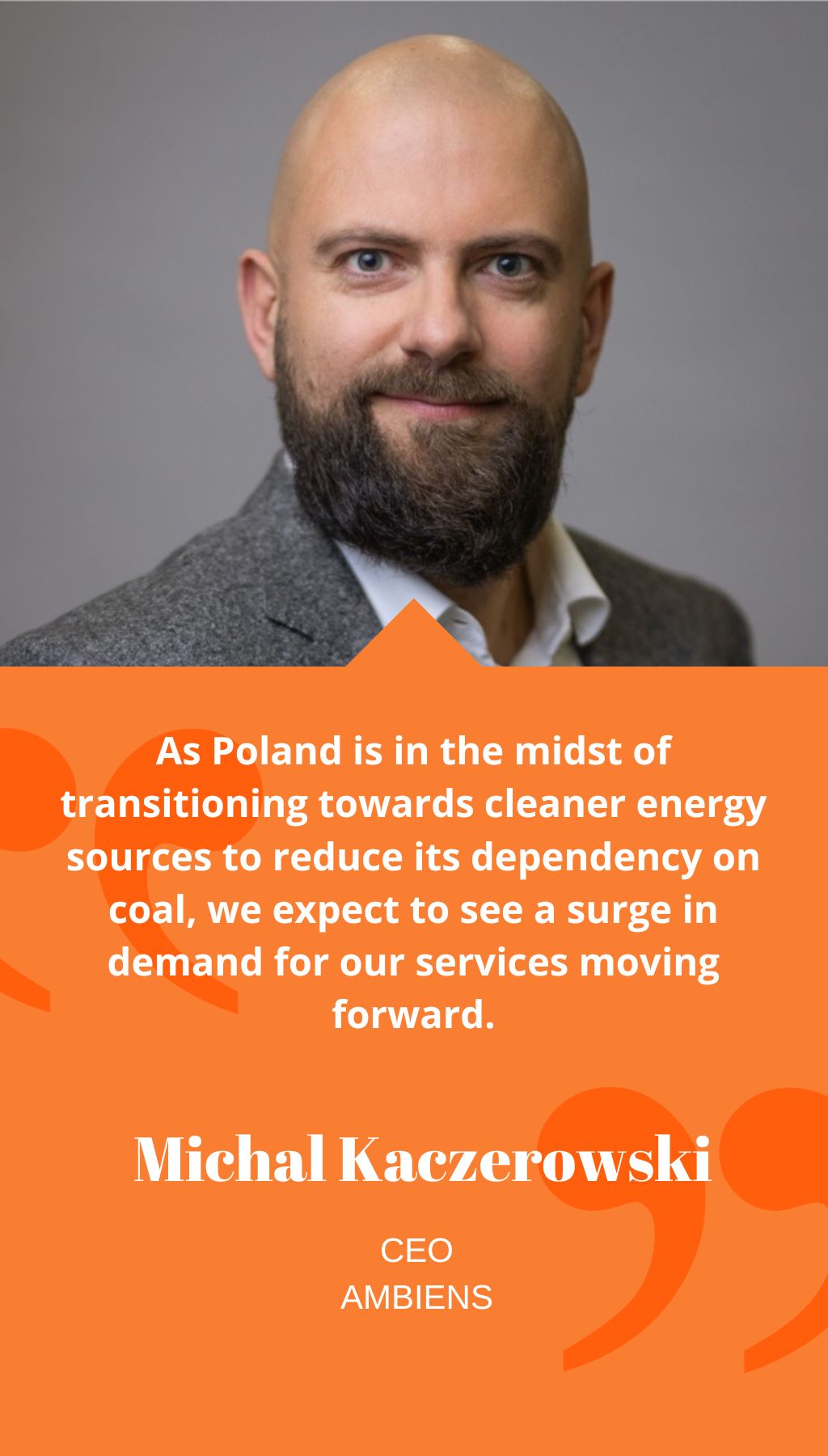
- Poland | 27 September 2019

Could you provide us with a comprehensive overview of Ambiens and its presence in Poland? Additionally, where do you observe the highest demand coming from?
Ambiens has been actively supporting the renewable energy sector in Poland since 2008 and has grown into a team of over ten professionals. Our services are primarily targeted towards the wind energy space, both onshore and offshore, as well as large PV projects. We strongly believe in the potential of the wind energy and PV sectors, with the offshore segment rapidly expanding at an exponential pace. As Poland is in the midst of transitioning towards cleaner energy sources to reduce its dependency on coal, we expect to see a surge in demand for our services moving forward.
Given the current climate, the 10H rule has become a pressing issue for the wind community. What are your thoughts on this topic, and do you believe there will be a resolution soon?
We are confident that an amendment to the 10H rule will be implemented soon, as the government is already in the process of drafting one. We expect to see changes implemented as soon as possible, but not later than the end of 2020. At Ambiens, one of our core services is to ensure effective communication and dialogue between all parties involved, including local communities. We firmly believe that this is essential for resolving any issues and reaching a consensus. Furthermore, given the current economic consequences of the COVID-19 pandemic, the development of wind energy as a renewable energy source could be a crucial element in Poland’s strategy to reduce CO2 emissions and provide a stable job market.
Effective communication often holds the key to building consensus among various stakeholders. What have been some of the primary concerns raised by the community, and what path do you envision moving forward?
The stakes surrounding wind energy have changed dramatically over the years, and as a result, we must look at the sector differently. Encouraging further development is of paramount importance, given that there are investors and developers with capital waiting for the 10H rule to be amended. Poland needs the wind energy boom to reach its goal of reducing CO2 emissions, and nuclear is also a clean option. The primary challenge lies in the amount of time and capital needed to develop these projects compared to windfarms, which take approximately six years, and PV, which takes around three years. Ultimately, Poland should aim to reach carbon neutrality by 2050, which is the ambition of the EU at large.
The offshore law draft is currently under public consultation. Do you expect it to be passed soon?
It is essential to look beyond the initial stages of any energy industry development and focus on the potential of projects in the future. The rules and regulations being put in place today will guide the industry for years to come. We believe that the offshore law, coupled with the maritime spatial plan, should encompass a long-term vision to best develop offshore wind farming. We trust that this “bible” for offshore wind farming will be passed within 2020, as there is no more time for delays. Poland has the potential to become a crucial player in the global offshore wind market and a leader on the Baltic.
Is the grid ready to accommodate the renewable energy that is currently being developed?
We are confident that the grid is prepared to support the offshore wind energy industry, but collaboration with partners in the Baltic region is crucial for energy transfer across borders within the region.
What are Ambiens’ key objectives for the next three years?
At Ambiens, our primary objective is to support the development of renewables, power transmission lines, and prepare permitting and EIAs for these types of investments. We also offer due diligence services and support the post-construction phases of projects.














